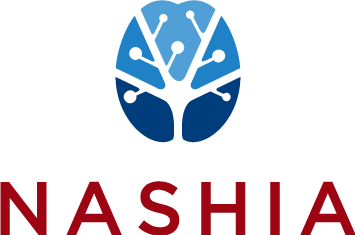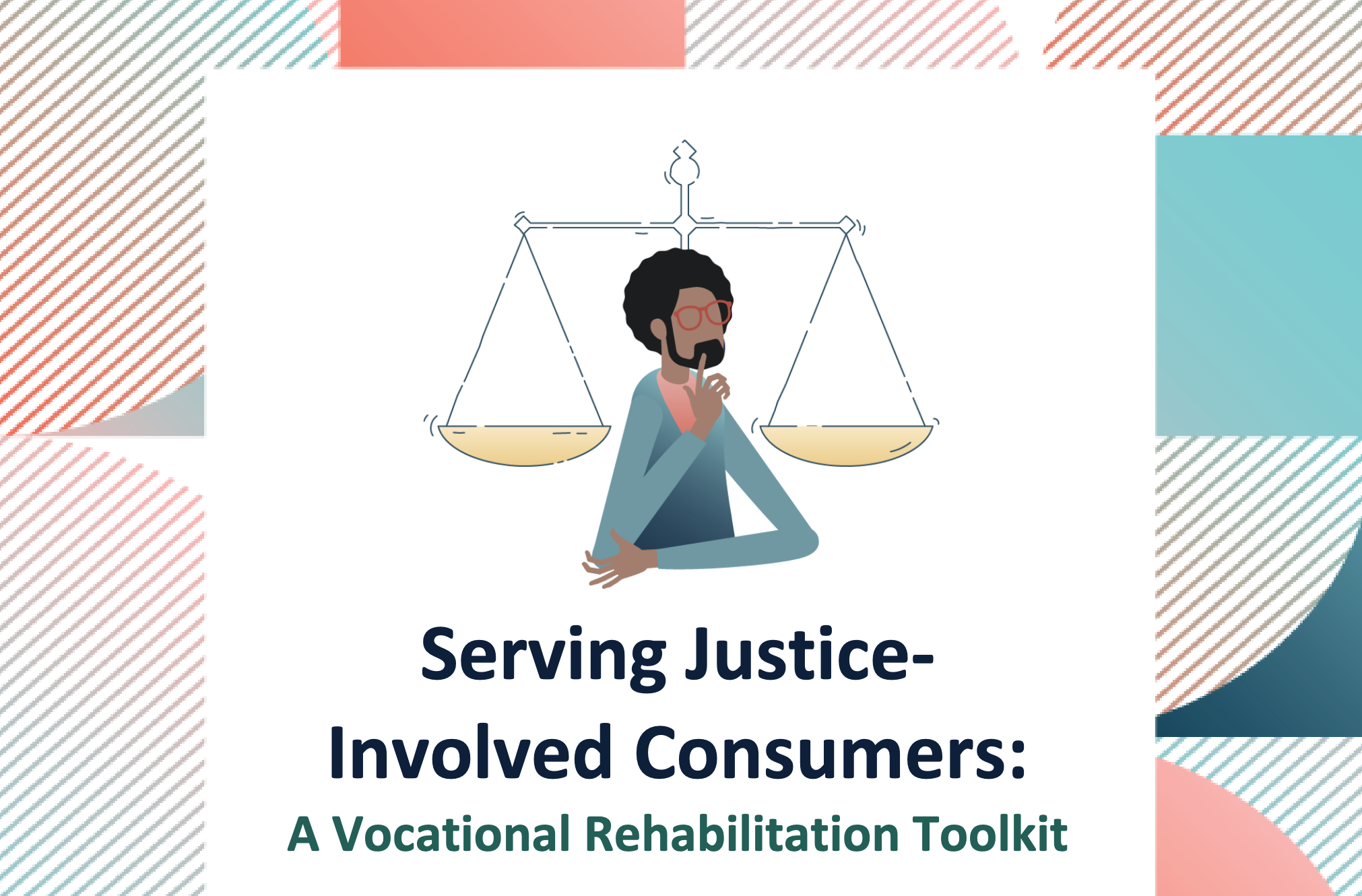VRTAC-QE Justice-Involved Toolkit
The primary purpose of the Justice-Involved Toolkit is to serve as a resource for vocational rehabilitation counselors. The toolkit will also be useful for other practitioners and organizations that work with individuals with disabilities who have been involved with the justice system. It is intended to be both a resource to better understand the needs of justice-impacted adults with disabilities and a tool to improve the provision of services for this disadvantaged population in vocational rehabilitation (VR).
Supporting People with Brain Injury through Certified Community Behavioral Health Clinics
This document discusses Certified Community Behavioral Health Clinics (CCBHCs) and how they can support individuals with brain injuries.
CCBHCs are clinics that provide a wide array of behavioral health and substance use services to anyone, regardless of their diagnosis or whether or not they have insurance.
These clinics offer nine core services, including crisis services, outpatient behavioral health and substance use services, and community-based behavioral health care for veterans.
The document emphasizes the significant overlap between behavioral health challenges and brain injury, highlighting the importance of CCBHCs in providing support for this population.
Supporting Crisis Stabilization for Youth and Young Adults during Reentry
Produced by the Council of State Governments (CSG) Justice Center, this document emphasizes the critical need for crisis stabilization support for young people and young adults with behavioral health needs as they transition from correctional facilities back into the community. It highlights that many of these individuals have behavioral health disorders and more susceptible to experiencing crises, often due to pre-existing harm or distress or lack of appropriate care.
This resource underscores the importance of addressing the unique needs of this population to ensure successful reentry and prevent future crises.
A.H.E.A.D.: Achieving Healing Through Education, Accountability, and Determination
A psycho-educational curriculum for traumatic brain injury, the goal is to provide justice-involved individuals who have screened positive for traumatic brain injury (TBI) with the insight and tools to better cope with and address the symptoms that they deal with, such as short-term memory loss, delayed speed of processing, and difficulty with emotional regulation. This group curriculum was developed based on best practices for group facilitation for individuals with TBI. In addition, the group topic focus areas were selected to address the hallmark symptoms of TBI.
DOJ and DHHS Guidance for Emergency Responses to People with Behavioral Health or Other Disabilities
In public guidance released last year, the U.S. Departments of Justice (DOJ) and Health and Human Services (HHS) emphasized that federal law mandates individuals with behavioral health conditions and other disabilities receive a healthcare response in situations where others would receive one, rather than a law enforcement response. This means that during a behavioral health crisis, a team of professionals with expertise in behavioral health should respond, similar to how an ambulance is dispatched for physical health emergencies. Failing to provide this response constitutes a violation of the civil rights of individuals with disabilities.
Ohio Research in TBI and Concussion in Law Enforcement
Injuries are often part of the job for those in law enforcement. But the injuries that can’t be seen often pose serious threats to officers’ long-term health. New research from The Ohio State University Wexner Medical Center reveals a correlation between head injuries and symptoms of depression and PTSD among law enforcement officers, highlighting the need for improved resources and protocols.
Mind Matters: Building a Justice System That Is Responsive to Brain Injury
NASHIA's Judy Dettmer was featured as a subject matter expert on brain injury in this brand new brief on brain injury and the criminal legal system, brought to you by the Council of State Governments and the Bureau of Justice Assistance.
It is estimated that over half of individuals encountering the criminal justice system have experienced at least one brain injury, yet many of these individuals are undiagnosed or misdiagnosed and left without proper care and supports across the criminal justice continuum.
This report synthesizes findings from a landscape review of brain injury in the criminal justice system, including interviews and focus groups; elevates key resources and best practices; and provides recommendations for building a responsive justice system.
The Intersection of Deflection, Traumatic Brain Injuries, and Substance Use Disorders Podcast Series
In this podcast series, the National Association of State Head Injury Administrators (NASHIA) team explores the interconnectivity between brain injury, behavioral health, law enforcement, and the justice system. Through the episodes, the team interviews experts and discusses the prevalence, impacts, and best practices for law enforcement to engage in successful interactions with those living with brain injury and behavioral health conditions.
Six-month Post-release Outcomes for Inmates With Traumatic Brain Injury in Supported Community Programming
The latest publication supported by the NASHIA team! Judy Dettmer, NASHIA’s Director of Technical Assistance and Special Projects assisted with this resource related to tracking outcomes of individuals released from the justice system with TBI.
The goal of this study was to examine the effectiveness of case management services for a population of justice-involved individuals with TBI history. The data suggests that receiving services can prevent an escalation of psychosocial needs.
Competencies for Training Juvenile Services on Justice-Involved Youth with Traumatic Brain Injury
Article published in the Journal of Applied Juvenile Justice Services, January 2024.
ABSTRACT
Research indicates young individuals with traumatic brain injuries (TBI) in juvenile justice settings lack essential support, mainly due to staff members' insufficient knowledge and skills in TBI-related areas stemming from a lack of relevant professional development. This study aimed to improve services for justice-involved youths with TBI in juvenile correction facilities by establishing empirically validated core competencies tailored to their needs. Through a Delphi study involving experts in juvenile services, juvenile corrections, TBI, transition services, and professional development, we identified and refined a set of 44 competencies distributed across six domains: knowledge (12 competencies), screening (6 competencies), eligibility (3 competencies), assessment (4 competencies), intervention (10 competencies), and community reentry (9 competencies).
Treatment Court Toolkit for Supporting Individuals w/ ABI
Each year, approximately 1.5 million Americans sustain a brain injury, and an estimated 5.3 million Americans are living with the effects of one. While the incidence of brain injuries in the general population is alarming, the prevalence among justice-involved individuals is staggering, so much so that the CDC recognizes brain injury in prisons and jails as an important public health problem.
All Rise's Justice for Vets has partnered with NASHIA to develop a new toolkit designed to help treatment courts better identify, assess, treat, and support individuals with acquired brain injury in their programs.
Building Capacity of Veteran Treatment Courts: Resources for Brain Injury Programs
The prevalence of brain injury among veterans is high, and especially so for those veterans who are engaged in the criminal legal system. Veteran treatment courts provide an ideal opportunity for a partnership between brain injury programs and the courts to ensure better outcomes for the veteran. This toolkit provides state brain injury programs an overview of what veteran court is, a video from a judge’s perspective designed to promote buy-in for the need for this support, tip sheets for a variety of audiences, and PowerPoint training slide decks to aid in training efforts.
TBI Youth Justice Website
NASHIA is proud to be a project partner with McMaster University as they launch the TBI Youth Justice website, a freely available resource and toolkit for and about children and youth (up to <25 years) with TBI who intersect with the criminal justice system internationally. The work of this international collaboration aims to make a difference in the trajectory and outcomes for childen and youth in the justice system around the globe.
DRNC TBI Justice Database
Disability Rights North Carolina (DRNC) has initiated the country’s first national database centralizing information on criminal legal system-related brain injury screening and supportive service programs, including pilots, academic studies, and projects from the past 30 years. Users will be able to search for reports about prior and ongoing TBI screening projects across the nation and for all population categories: juvenile justice, adult corrections, specialty courts, probation, and parole.
Criminal and Juvenile Justice Best Practice Guide and Supporting Materials
With support from the ACL TBI Program’s Criminal and Juvenile Justice Workgroup, NASHIA developed this best practice guide for state brain injury programs related to brain injury and criminal and juvenile justice.
Mt. Sinai: A Guide to Resources to Address TBI within Juvenile Justice Systems in the United States
“Opportunity lost” seems an apt characterization of many juvenile justice systems (JJSs) in the United States, in terms of learning about and addressing the needs of youth with TBI under their jurisdiction.
Colorado Criminal Justice and Brain Injury
“The Brain Injury Alliance of Colorado (BIAC) envisions our state to be one in which all survivors can thrive, including those that have been or are currently involved in the criminal justice system.”
Alabama Report on TBI and Juvenile/Criminal Justice Systems
“The ADRS State Head Injury Program convened a second meeting: “Traumatic Brain Injury in the Criminal Justice & Juvenile Justice Systems” with representatives from ten states in December 2017 in Birmingham, Alabama. The purpose of this meeting was to share lessons learned and draw conclusions regarding challenges faced by states in addressing the four obstacles identified by HRSA in delivering services for individuals with TBI in these systems.”


















